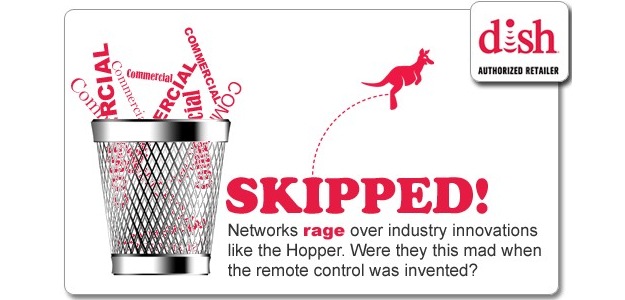 In the ongoing battle between television networks and channel carrier Dish Network, the winner seems to be “the legal system,” with two rulings this week that allow the networks to continue fighting with Dish, with the skirmish taking place on two fronts – which was part of Dish’s problem.
In the ongoing battle between television networks and channel carrier Dish Network, the winner seems to be “the legal system,” with two rulings this week that allow the networks to continue fighting with Dish, with the skirmish taking place on two fronts – which was part of Dish’s problem.
The first ruling came on Wednesday as US District Court Judge Dolly Gee refused to allow Fox Broadcasting’s attempt to block Dish’s ad-skipping DVR tech. Although the court order relating to the case is under seal – in part, to allow both parties involved to redact information contained therein that they may deem confidential or proprietary information – the Hollywood Reporter revealed that Gee’s ruling wasn’t as simple as just allowing Dish’s “AutoHop” and “PrimeTime Anytime” features to continue without any restrictions; apparently, she believed that the systems may, in fact, infringe on particular copyright as they pertain to allowing the DVR to make copies of broadcast material in order to skip past commercials (Dish, for their part, responded by saying again that it did not believe that copies made using PrimeTime Anytime infringed on Fox’s exclusive reproduction rights under federal copyright laws in the same way that AutoHop didn’t translate into unauthorized distribution under the same laws, nor contravene VOD provisions of the involved parties).
In a statement released in response to the ruling, the company called Gee’s decision “a victory for common sense and customer choice,” adding that “the court [confirmed] a consumer’s right to enjoy television as they want, when they want, including the reasonable right to skip commercials if they choose.” Fox’s response statement was, as you might expect, a little less pleased with the verdict (“We are disappointed the court erred in finding that Fox’s damages were not suitable for a prelimary injunction,” being the exact phrase they used) but also found something to be happy about: “We are gratified the court found the copies DISH makes for its AutoHop service constitute copyright infringement and breach the parties’ contract.” Fox has already filed for appeal.
In a separate hearing also presided over by Judge Gee, however, Dish was the denied party as its attempt to prevent NBC from pursuing legal action against the company in California instead of New York – where the company is already fighting related legal battles against ABC and CBS – ran aground. NBC filed the suit in May, and a New York judge allowed the case to proceed in California two months later. Now, Gee denied Dish’s appeal against that decision, writing in her decision that “the Court finds that the dismissal of the contract claims would subvert rather than serve the policy objectives of Rule 13(a) and the first-to-file rule.” NBC’s Californian case against the company will continue.


